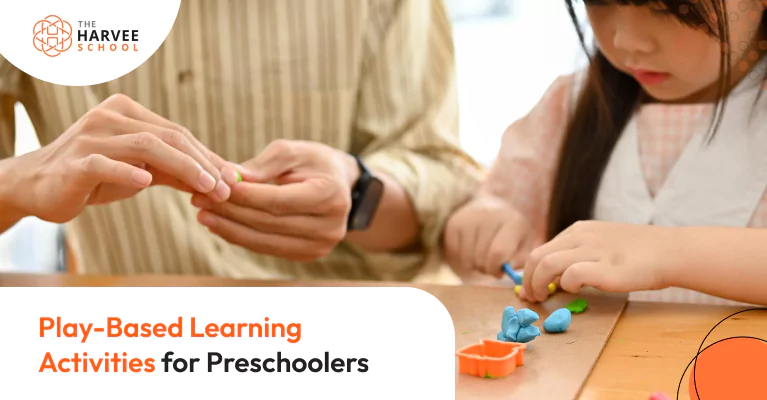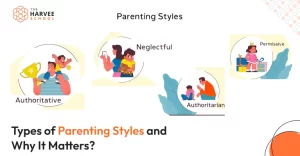Play-Based Learning Activities for Preschoolers
Play is the foundation of childhood learning. Play-based learning activities encourage children to explore, create, and interact in ways that support cognitive, social, and emotional development. Unlike traditional learning methods, play-based learning makes education fun, fostering curiosity and engagement. In this article, we will explore the best play-based learning activities to help your child grow and thrive.
Benefits of Play-Based Learning
Enhances Cognitive Development – Encourages problem-solving, critical thinking, and creativity.
Boosts Social Skills – Helps children learn teamwork, communication, and empathy.
Improves Motor Skills – Supports physical coordination and fine motor abilities.
Encourages Emotional Growth – Teaches self-regulation and resilience.
Makes Learning Enjoyable – Engages children in an entertaining way, ensuring better retention.
Develops Language Skills – Helps children build vocabulary and storytelling abilities.
Encourages Independence – Allows kids to make choices and explore their creativity.
Best Play-Based Learning Activities
1. Sensory Play
Sensory play involves activities that engage a child’s senses—touch, smell, sight, sound, and taste. This type of play is excellent for brain development and exploration.
Activity: Create a sensory bin filled with rice, beans, or sand. Include small toys, spoons, and cups to enrich the experience.
How It Works: As children scoop, pour, and sift through different textures, they develop fine motor skills and hand-eye coordination. This type of play also stimulates creativity and problem-solving.
Benefits: Improves fine motor skills, cognitive development, and sensory awareness.
2. Role-Playing Games
Role-playing encourages imagination and social interaction. It enables children to explore various roles and scenarios.
Activity: Set up a pretend grocery store, doctor’s office, or school at home.
How It Works: When kids take on different roles, they practice communication, problem-solving, and social skills.
Benefits: Enhances creativity, teamwork, and confidence.
3. Building and Construction Play
Building activities help children develop problem-solving skills and spatial awareness.
Activity: Provide blocks, LEGO, or household items for free play construction.
How It Works: Children plan, stack, and create structures, which develops their critical thinking and fine motor skills.
Benefits: Improves motor skills, spatial intelligence, and logical thinking.
4. Outdoor Nature Play
Nature-based play creates curiosity and appreciation for the environment.
Activity: Organize a scavenger hunt in a park or garden.
How It Works: Searching for items in nature sharpens observation skills and encourages active learning.
Benefits: Encourages exploration, creativity, and environmental awareness.
5. Music and Movement Activities
Music and movement help with coordination, rhythm, and self-expression.
Activity: Play musical instruments, dance to songs, or engage in action rhymes.
How It Works: Engaging with music stimulates brain development, memory, and emotional expression.
Benefits: Boosts cognitive skills, coordination, and emotional intelligence.
6. Storytelling and Puppet Play
Storytelling improves language skills and imagination.
Activity: Use puppets or props to act out a story.
How It Works: Kids learn to organize thoughts, expand vocabulary, and enhance their creativity through storytelling.
Benefits: Develops language skills, listening abilities, and self-expression.
7. Science Experiments for Kids
Simple science experiments encourage curiosity and problem-solving.
Activity: Mix baking soda and vinegar to create a fun eruption.
How It Works: Observing cause-and-effect relationships helps children understand basic scientific concepts.
Benefits: Encourages inquiry, observation, and critical thinking.
8. Art and Craft Activities
Art allows children to express themselves creatively while developing fine motor skills.
Activity: Provide crayons, paints, and paper for free expression.
How It Works: Experimenting with colors and textures fosters creativity and concentration.
Benefits: Enhances creativity, patience, and hand-eye coordination.
9. Puzzle and Board Games
Puzzles and board games promote logical thinking and patience.
Activity: Play age-appropriate puzzles or games like Memory Match.
How It Works: These games challenge children to recognize patterns, plan strategies, and think critically.
Benefits: Strengthens problem-solving skills, focus, and patience.
10. Cooking and Baking Fun
Cooking is a practical play-based learning activity that teaches measurements, sequencing, and teamwork.
Activity: Involve kids in making simple recipes like cookies or sandwiches.
How It Works: Measuring ingredients and following steps introduce kids to math and logical thinking.
Benefits: Encourages independence, teamwork, and responsibility.
11. Water Play Activities
Water play helps with sensory development and fine motor skills.
Activity: Set up a water table with cups, funnels, and small floating toys.
How It Works: Pouring, splashing, and observing water movement stimulate coordination and curiosity.
Benefits: Improves motor skills, sensory awareness, and social interaction.
12. Gardening with Kids
Gardening teaches children responsibility and patience while connecting them with nature.
Activity: Allow kids to plant seeds and take care of their own small garden.
How It Works: Watching plants grow over time teaches kids about nature, patience, and responsibility.
Benefits: Enhances environmental awareness, responsibility, and scientific understanding.
13. Dramatic Play and Dress-Up
Dramatic play allows kids to explore different roles and perspectives.
Activity: Provide costumes and props for kids to dress up as their favorite characters.
How It Works: Acting out different roles strengthens imagination, communication, and emotional skills.
Benefits: Improves storytelling, empathy, and self-confidence.
14. Obstacle Course Challenges
Physical play is essential for motor skill development and confidence building.
Activity: Set up an obstacle course using household items.
How It Works: Jumping, crawling, and balancing help kids develop coordination and problem-solving skills.
Benefits: Enhances physical fitness, agility, and decision-making skills.
How to Incorporate Play-Based Learning at Home?
Create a Play-Friendly Environment – Designate a space with safe and engaging toys.
Encourage Open-Ended Play – Allow children to explore without rigid rules.
Be Involved – Participate in activities to guide and inspire.
Use Everyday Opportunities – Turn daily routines into fun learning moments.
Balance Screen Time – Ensure hands-on playtime is prioritized.
Follow Your Child’s Interests – Tailor play-based activities to what excites your child.
Rotate Activities – Keep playtime fresh by introducing new challenges and games.
Conclusion
Play-based learning activities are essential for a child’s growth and development. These activities not only make learning enjoyable but also enhance cognitive, social, and emotional skills. By incorporating these fun and educational activities into your child’s daily routine, you can create a rich learning experience that prepares them for future success.
Are you ready to implement play-based learning at home? Start today and watch your child flourish!






